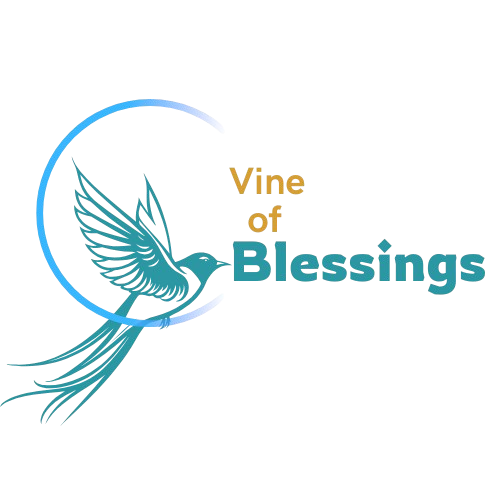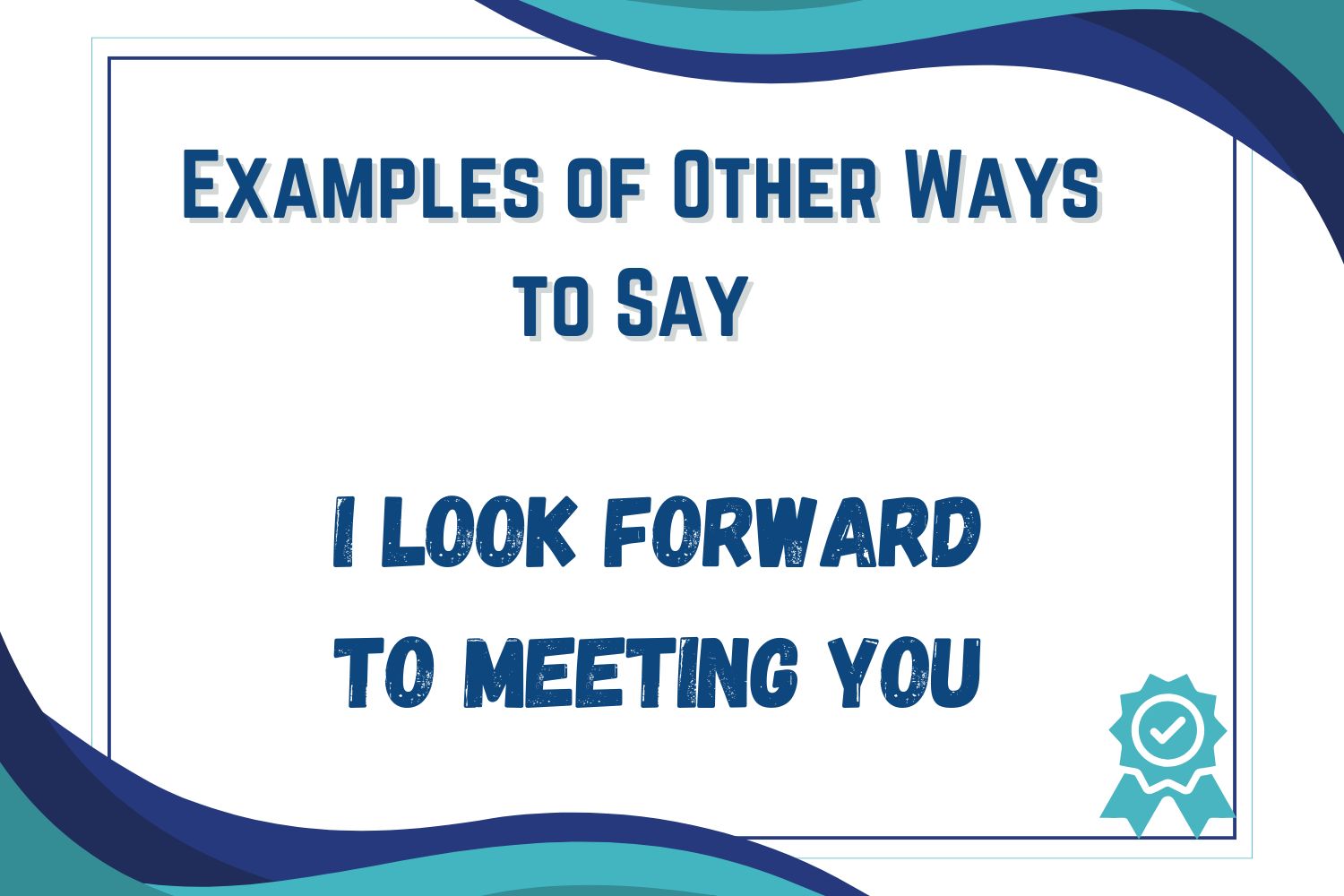Are you tired of sounding like a broken record every time you express anticipation for a meeting? 🤔 The phrase “I look forward to meeting you” has become so overused that it often fails to make a lasting impression. But fear not! There’s a whole world of exciting alternatives waiting to be discovered.
Imagine the impact you could make by switching up your pre-meeting pleasantries. Whether you’re aiming for a formal tone in a business setting or a casual vibe with new friends, the right expression can set the stage for a memorable encounter. In this blog post, we’ll explore a variety of fresh and engaging ways to convey your excitement about an upcoming meeting, helping you stand out from the crowd and make a stellar first impression.
From formal alternatives that exude professionalism to casual phrases that radiate warmth, we’ll cover it all. We’ll even delve into context-specific options and show you how to add a personal touch to your expressions. So, let’s dive in and discover how you can elevate your communication game with these innovative alternatives to “I look forward to meeting you”!
Understanding the Importance of Varied Expressions
A. Building rapport with professional contacts
Using varied expressions when communicating with professional contacts is essential for building rapport and creating a positive impression. By diversifying your language, you demonstrate thoughtfulness and attention to detail, which can significantly impact your professional relationships.
Here are some key benefits of using varied expressions:
- Personalization: Tailoring your language shows genuine interest
- Memorability: Unique phrases make you stand out
- Professionalism: Diverse vocabulary showcases communication skills
B. Avoiding overused phrases
Overused phrases can make your communication feel generic and impersonal. By avoiding clichés, you can:
- Capture the recipient’s attention
- Convey sincerity in your message
- Demonstrate creativity and effort
C. Demonstrating language proficiency
Utilizing a range of expressions showcases your language skills and verbal dexterity. This can be particularly beneficial in:
| Scenario | Impact |
|---|---|
| Job applications | Impress potential employers |
| Networking events | Stand out among peers |
| International communication | Adapt to different cultural contexts |
D. Creating a positive first impression
The way you express anticipation for a meeting can set the tone for your future interaction. A well-crafted expression can:
- Convey enthusiasm and genuine interest
- Establish a professional yet approachable tone
- Create a memorable introduction
By mastering alternative ways to say “I look forward to meeting you,” you’ll be better equipped to navigate various professional situations with confidence and finesse.
Formal Alternatives to “I Look Forward to Meeting You”
A. “I eagerly anticipate our upcoming meeting”
This phrase conveys enthusiasm and professionalism, making it an excellent choice for formal business communications. It demonstrates a higher level of anticipation compared to the standard “I look forward to meeting you.”
B. “I’m excited about the opportunity to meet with you”
This alternative adds a touch of personal excitement while maintaining a professional tone. It’s particularly effective when reaching out to potential clients or partners.
C. “It will be a pleasure to make your acquaintance”
This elegant expression carries a more refined and sophisticated tone, ideal for formal or high-stakes situations. It’s particularly suitable when addressing senior executives or important stakeholders.
D. “I’m looking forward to our scheduled appointment”
This alternative emphasizes the planned nature of the meeting, conveying reliability and punctuality. It’s especially useful in professional settings where time management is crucial.
Here’s a comparison of these formal alternatives:
| Alternative | Tone | Best Used For |
|---|---|---|
| “I eagerly anticipate our upcoming meeting” | Enthusiastic, Professional | Business emails, Conference invitations |
| “I’m excited about the opportunity to meet with you” | Positive, Engaging | Networking events, Job interviews |
| “It will be a pleasure to make your acquaintance” | Refined, Sophisticated | High-level meetings, Formal introductions |
| “I’m looking forward to our scheduled appointment” | Organized, Punctual | Client meetings, Medical appointments |
When choosing a formal alternative, consider:
- The nature of your relationship with the recipient
- The context of the meeting or interaction
- The level of formality required in your industry or situation
By using these alternatives, you can elevate your communication and create a positive impression before the actual meeting takes place. Next, we’ll explore more casual and friendly alternatives for less formal situations.
Casual and Friendly Alternatives
Casual and Friendly Alternatives
When it comes to expressing excitement about meeting someone in a more relaxed setting, there are several casual and friendly alternatives to the formal “I look forward to meeting you.” These options can help you sound more approachable and create a warmer connection. Let’s explore some popular casual expressions:
A. “Can’t wait to meet up!”
This enthusiastic phrase conveys a sense of eagerness and anticipation. It’s perfect for informal situations or when you want to express genuine excitement about the upcoming meeting.
B. “I’m really looking forward to connecting”
This alternative adds a personal touch while maintaining a friendly tone. It emphasizes the relational aspect of the meeting, suggesting that you’re interested in building a connection.
C. “Excited to put a face to the name”
This expression is particularly useful when you’ve been communicating with someone remotely and are finally going to meet in person. It adds a touch of humor and familiarity to the interaction.
D. “It’ll be great to finally meet in person”
Similar to the previous option, this phrase is ideal for situations where you’ve been in contact but haven’t met face-to-face. It expresses anticipation and acknowledges the transition from virtual to in-person interaction.
Here’s a comparison of these casual alternatives:
| Expression | Level of Informality | Best Used For |
|---|---|---|
| “Can’t wait to meet up!” | Very casual | Social settings, friends |
| “I’m really looking forward to connecting” | Moderately casual | Networking events, casual business meetings |
| “Excited to put a face to the name” | Casual with humor | First-time in-person meetings after remote communication |
| “It’ll be great to finally meet in person” | Casual but professional | Business contacts transitioning from virtual to in-person meetings |
Now that we’ve explored casual alternatives, let’s move on to context-specific expressions that can be tailored to particular situations.
Context-Specific Alternatives
A. For job interviews: “I’m enthusiastic about discussing the role further”
When preparing for a job interview, expressing your enthusiasm in a unique way can set you apart. Instead of the standard “I look forward to meeting you,” try saying:
- “I’m eager to explore how my skills align with your team’s needs.”
- “I’m excited about the opportunity to discuss my qualifications in person.”
- “I’m looking forward to learning more about the challenges this position entails.”
B. For networking events: “I’m keen to exchange ideas with you”
Networking events provide excellent opportunities to connect with professionals in your field. Consider these alternatives:
- “I’m excited to share insights and learn from your experiences.”
- “I’m looking forward to engaging in thought-provoking discussions with you.”
- “I’m eager to explore potential collaborative opportunities.”
C. For business partnerships: “I anticipate a fruitful discussion about our potential collaboration”
When approaching potential business partners, it’s crucial to convey your interest professionally. Try these expressions:
- “I’m optimistic about the prospect of aligning our business goals.”
- “I’m enthusiastic about exploring synergies between our organizations.”
- “I’m looking forward to a productive dialogue on our potential partnership.”
D. For social gatherings: “I’m thrilled about the chance to get to know you better”
In social settings, a more casual tone is appropriate. Consider these friendly alternatives:
- “I can’t wait to catch up and hear what you’ve been up to!”
- “I’m excited to spend some quality time together.”
- “I’m really looking forward to our get-together.”
| Context | Formal Alternative | Casual Alternative |
|---|---|---|
| Job Interview | “I’m enthusiastic about discussing the role further” | “Can’t wait to chat about the job!” |
| Networking Event | “I’m keen to exchange ideas with you” | “Looking forward to swapping stories!” |
| Business Partnership | “I anticipate a fruitful discussion about our potential collaboration” | “Excited to brainstorm together!” |
| Social Gathering | “I’m thrilled about the chance to get to know you better” | “Can’t wait to hang out!” |
Now that we’ve explored context-specific alternatives, let’s look at how you can add a personal touch to your expressions.
Adding Personal Touch to Your Expression
A. Mentioning shared interests or connections
Adding a personal touch to your expression can significantly enhance your communication. One effective way to do this is by mentioning shared interests or connections. This approach not only demonstrates your attentiveness but also creates an immediate rapport. For example:
- “I’m excited to discuss our mutual passion for sustainable architecture.”
- “As fellow alumni of XYZ University, I’m looking forward to our meeting.”
- “Given our shared interest in emerging tech, our conversation should be fascinating.”
B. Referencing previous correspondence
Acknowledging previous interactions shows continuity and attention to detail. Consider these examples:
- “Following up on our insightful email exchange, I’m eager for our face-to-face discussion.”
- “After our brief chat at the conference, I’m keen to delve deeper into the topics we touched upon.”
| Approach | Example |
|---|---|
| Email reference | “Your proposal piqued my interest, and I’m excited to explore it further in person.” |
| Phone call follow-up | “Our call left me intrigued, and I’m anticipating a productive meeting.” |
C. Expressing gratitude for the meeting opportunity
Showing appreciation for the other person’s time can set a positive tone:
- “I’m grateful for the chance to meet and learn from your expertise.”
- “Thank you for making time in your schedule. I’m looking forward to our discussion.”
D. Highlighting specific topics you’re excited to discuss
Mentioning particular subjects demonstrates preparation and enthusiasm:
- “I’m particularly keen to explore your innovative approach to customer retention.”
- “Your recent project on AI ethics has captured my attention, and I’m eager to hear more about it.”
By incorporating these personal touches, you can elevate your expression beyond the standard “I look forward to meeting you” and create a more engaging and memorable interaction.
Mastering various ways to express anticipation for a meeting demonstrates professionalism and adaptability in different social and business contexts. From formal alternatives like “I eagerly await our upcoming discussion” to casual options such as “Can’t wait to catch up soon,” these expressions allow you to tailor your communication to the situation at hand. Remember to consider the relationship with the recipient and the nature of the meeting when choosing your phrase.
Ultimately, the key is to convey genuine enthusiasm while maintaining an appropriate tone. By incorporating personal touches and context-specific language, you can create a lasting positive impression before the meeting even begins. So, go ahead and experiment with these alternatives – your networking and communication skills will undoubtedly benefit from this expanded repertoire of expressions.




